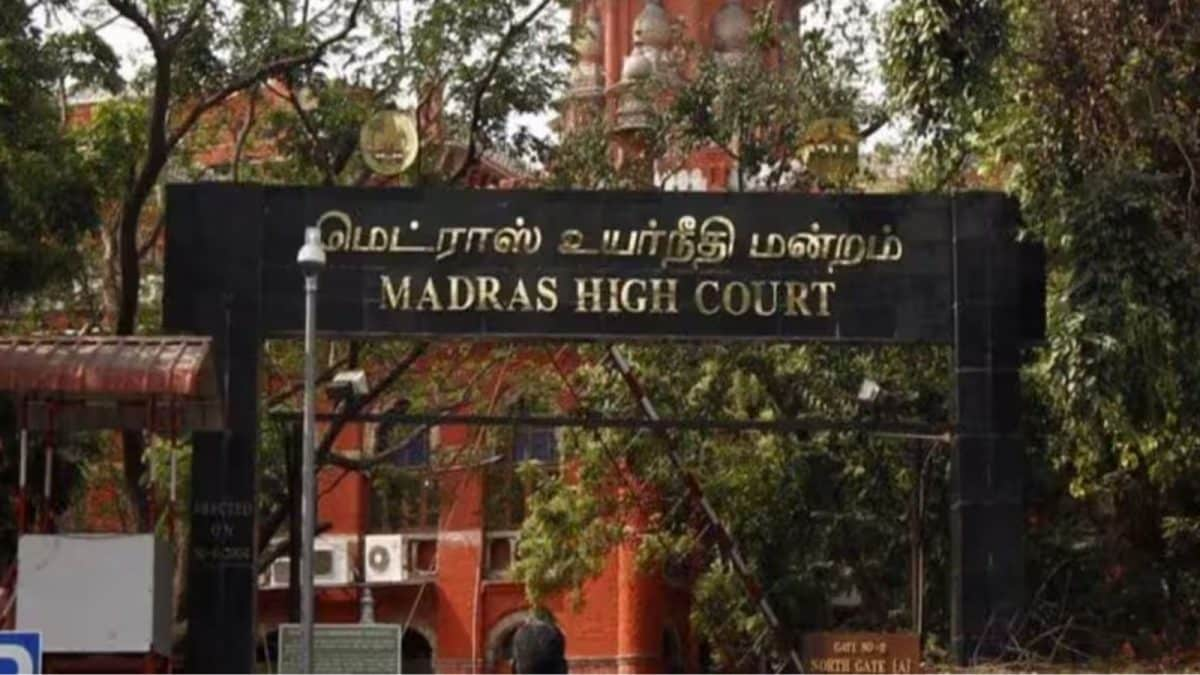Last Updated:
The petition was moved by president of an organisation advocating for farmers’ rights, who claimed that he and his associates were repeatedly stopped from traveling to New Delhi

The judge emphasised the importance of constitutional freedoms, recalling how Mahatma Gandhi’s own deboarding from a train had triggered a historic moment in the freedom struggle.
The Madras High Court has cautioned railway authorities that passengers holding valid tickets cannot be forced off trains merely because they intend to participate in protests, calling such conduct unlawful.
The bench of Justice B Pugalendhi, deciding a writ petition filed by farmer leader P Ayyakannu on September 17, 2025, reiterated that the Constitution protects citizens’ rights to travel and protest, though these are subject to reasonable restrictions. At the same time, the court rejected the petitioner’s plea for a blanket order restraining interference with his travel, observing that the allegations lacked specific details.
Recommended Stories
“Sections 55, 56 and 156 of the Railways Act, 1989, allow railway officials to deboard a passenger only in narrowly defined situations… None of these provisions permit deboarding a valid ticket holder on the mere ground of intended protest. If such deboarding occurs, it constitutes an offence warranting action against the officials concerned,” the judge said.
The petition was moved by Ayyakannu, president of an organisation advocating for farmers’ rights and river water linkage, who claimed that he and his associates were repeatedly stopped from traveling to New Delhi despite having proper tickets. He alleged that in September 2024, they were deboarded specifically to prevent them from staging a peaceful demonstration. His history of agitation was placed before the court, including a 141-day protest at Jantar Mantar and marches across Tamil Nadu.
Advocate S Muthukrishnan, appearing for the petitioner, argued that authorities had a pattern of obstructing Ayyakannu’s lawful protests, pointing out earlier instances in 2015 and 2016 where similar actions had forced him to move the courts.
The Trichy Police Commissioner, in a counter-affidavit, painted a different picture. It was alleged that Ayyakannu’s protests frequently flouted conditions, creating what the police described as “public nuisance”. Instances were cited where demonstrators used provocative methods such as donning masks of the Prime Minister, parading with skulls and bones, staging fasts with senior citizens, and even encouraging risky acts like climbing cellphone towers. The police informed the court that as many as 73 cases were registered against the farmer leader.
The bench noted this material, recording that while Ayyakannu’s stated objective may be lawful, his methods often crossed into disruptive territory.
The judge, however, emphasised the importance of constitutional freedoms, recalling how Mahatma Gandhi’s own deboarding from a train had triggered a historic moment in the freedom struggle. “It is precisely to avoid such suppression that our Constitution enshrines the rights to free speech, assembly and movement,” the order stated.
The court also cited the Supreme Court’s decision in Anita Thakur v Government of Jammu and Kashmir (2016), reaffirming peaceful protest as an integral part of Article 19 rights.
Nonetheless, the bench declined to grant sweeping relief, noting that the petition lacked concrete dates and particulars about the alleged deboarding incidents. It pointed out that being a lawyer himself, Ayyakannu could have sought immediate legal recourse in each instance.
In disposing of the petition, the court made it clear that while citizens are free to travel and protest, these rights are not without limits. The petitioner, it held, must secure prior permission for demonstrations and abide by lawful restrictions. At the same time, authorities were warned that arbitrary prevention of travel by ticketed passengers would not be tolerated and could expose officials to legal action.
About the Author

Salil Tiwari, Senior Special Correspondent at Lawbeat, reports on the Allahabad High Court and courts in Uttar Pradesh, however, she also writes on important cases of national importance and public interests fr…Read More
Salil Tiwari, Senior Special Correspondent at Lawbeat, reports on the Allahabad High Court and courts in Uttar Pradesh, however, she also writes on important cases of national importance and public interests fr… Read More
September 18, 2025, 16:07 IST
Loading comments…
Read More



